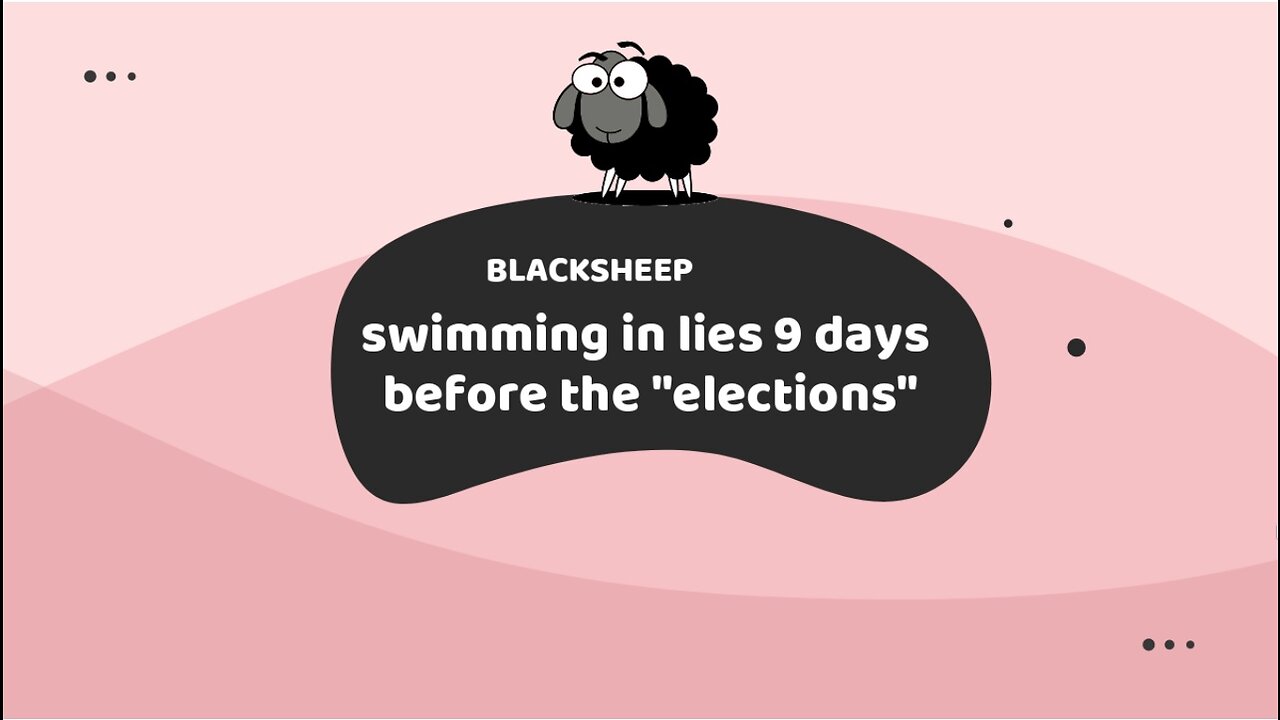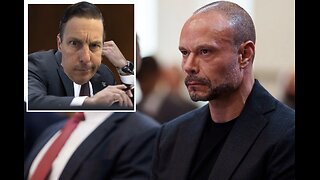Premium Only Content

swimming in lies 9 days before the "elections"
En el 'cara a cara' entre Alberto Núñez Feijóo y Pedro Sánchezen Atresmedia, el presidente del Gobierno negó que se vayan a imponer peajes en las autovías. Sin embargo, poco después, el director general de la DGT confirmó, el jueves, que sí habrá peajes y, horas después, fue obligado a desmentirse a sí mismo.
"Por imposición de Bruselas, tendremos que poner peajes, porque nos lo exige Bruselas", dijo en un principio Pere Navarro, "y este sí que ha sido un gran tema por acuerdo, un gran pacto entre los dos partidos".
"Lamento si ha podido ocasionar algún tipo de confusión sobre un tema en el que el Gobierno se ha manifestado de forma reiterada, contundente y que no está sobre la mesa de ninguna forma", rectificó horas más tarde.
En esas últimas horas, gran parte Ejecutivo ha salido a desautorizar a su propio director general de Tráfico, pero las afirmaciones de Navarro están respaldadas por documentos oficiales que el Gobierno envió a Bruselas.
Hace más de dos años que el Gobierno se comprometió con Bruselas a implantar peajes en las autovías para acceder a los fondos europeos durante la pandemia. Así consta en el 'Plan de recuperación, transformación y resiliencia' que Moncloa envió a Bruselas en abril de 2021.
En este plan, se habla de esos peajes varias veces. Concretamente, en la página 87 se dice que "se revisará la financiación de las vías de alta capacidad y se establecerá un sistema de ingresos". De la misma manera, en la página 127, se puede leer que "es preciso desarrollar un sistema de pago por uso de la red de vías de alta capacidad". Por último, en la página 134, se asegura que se desarrollará un "mecanismo de pago por uso de carreteras de alta intensidad".
El anexo que Moncloa envió a la CE dos meses después
Dos meses después, en julio de 2021, Moncloa envió a la Comisión Europea un anexo en el que especificaba el año en el que se pondría en marcha ese peaje. En la página dos, se explica que se creará "un mecanismo de pago por el uso de las carreteras del Estado, que comenzará a funcionar a partir de 2024, con arreglo al principio de 'quien contamina paga'".
En la página 278, se citan "impuestos o pagos relacionados con la movilidad, como la introducción de peajes de carretera". Finalmente, en la página 282, se dice que "la reforma prevé un análisis de las figuras tributarias que gravan la matriculación y la utilización de vehículos o la creación de peajes de carretera".
In the 'face to face' between Alberto Núñez Feijóo and Pedro Sánchez Atresmedia, the president of the Government denied that tolls are going to be imposed on the highways. However, shortly after, the general director of the DGT confirmed, on Thursday, that there will be tolls and, hours later, he was forced to deny himself.
"By imposition of Brussels, we will have to put tolls, because Brussels demands it of us," Pere Navarro said at first, "and this has indeed been a great issue by agreement, a great pact between the two parties."
"I am sorry if it has been able to cause some kind of confusion on an issue on which the government has repeatedly, forcefully expressed itself and that is not on the table in any way," he corrected hours later.
In those last hours, a large part of the executive has come out to disavow its own director general of Traffic, but Navarro's assertions are supported by official documents that the government sent to Brussels.
It has been more than two years since the government made a commitment to Brussels to implement tolls on motorways to access European funds during the pandemic. This is stated in the 'Recovery, transformation and resilience Plan' that Moncloa sent to Brussels in April 2021.
In this plan, those tolls are talked about several times. Specifically, on page 87 it says that "the financing of high-capacity roads will be reviewed and a revenue system will be established." In the same way, on page 127, it can be read that "it is necessary to develop a system of payment for the use of the high-capacity road network". Finally, on page 134, it is assured that a "payment mechanism for the use of high-intensity roads" will be developed.
The annex that Moncloa sent to the EC two months later
Two months later, in July 2021, Moncloa sent the European Commission an annex specifying the year in which this toll would be implemented. On page two, it is explained that "a payment mechanism for the use of the state's roads will be created, which will start operating from 2024, according to the 'polluter pays' principle."
On page 278, "taxes or payments related to mobility, such as the introduction of road tolls" are cited. Finally, on page 282, it says that "the reform provides for an analysis of the tax figures that tax the registration and use of vehicles or the creation of road tolls."
Blacksheep Twitter: https://twitter.com/Blacksh49424801
-
 20:59
20:59
Blacksheep
1 year agoAleksandr Dugin liberalism
757 -
 LIVE
LIVE
sophiesnazz
1 hour ago $0.02 earnedTIME TO WIND PEOPLE UP !socials
199 watching -
 LIVE
LIVE
OhHiMark1776
2 hours ago🟢07-26-25 ||||| Halo Multiplayer Rumble: No. 16 ||||| Halo MCC (2019)
61 watching -
 LIVE
LIVE
GamerGril
1 hour agoThe E-Gril Within | First Time Play Through | Saturday Spookfest
98 watching -
 18:22
18:22
Liz Wheeler
2 hours agoWhat Ghislaine Maxwell Knows
4106 -
 LIVE
LIVE
cosmicvandenim
5 hours agoWARZONE - Kenetik Energy Announcement - Discord Spy Bots
58 watching -
 1:05:51
1:05:51
Jeff Ahern
2 hours ago $13.79 earnedThe Saturday Show with Jeff Ahern
82.9K10 -
 LIVE
LIVE
Misfit Electronic Gaming
32 minutes ago"LIVE" RUMBLE HALO Spartans "Halo MCC" 23 Followers to go till we hit !000 RUMBLE TAKEOVER
14 watching -
 1:57:13
1:57:13
Film Threat
4 hours agoLIVE FROM SAN DIEGO COMIC-CON! (Saturday) | Film Threat Live
7.69K -
 31:40
31:40
Tactical Advisor
2 hours agoEveryone Talks About This AR15 Being The Best? | Vault Room Live Stream 034
53.1K3